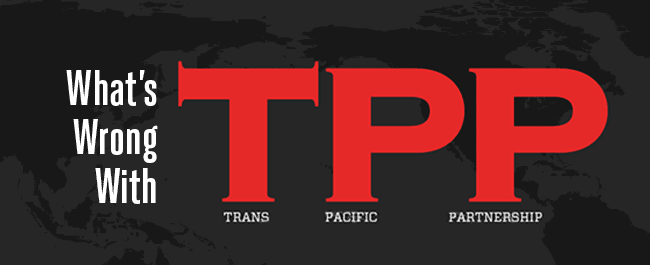Chilean Senators echo the pro-Internet community’s call for transparency as TPP talks continue
Chilean Senators respond to public outcry around the secretive and extreme TPP Agreement
It’s easy to feel disheartened as yet another round of secretive Trans-Pacific Partnership (TPP) negotiations takes place this week in the not-so-democratic Sultanate of Brunei. The public is locked out of the talks, the supposed “stakeholder day” is set up to be as meaningless as possible, and the text of the agreement is still shrouded in secrecy. But the battle isn’t lost yet, and the global pro-Internet community has been making an impact and gaining momentum.
Ever since leaked drafts of the TPP’s Intellectual Property Chapter revealed that the international agreement could criminalize everyday uses of the Internet, citizens and civil society groups around the world have been making their voices heard and pushing for a fair deal. And decision-makers are taking notice.
Most recently, the Chilean Senate set an amazing example for the other eleven nations involved in the TPP talks; they unanimously agreed to petition the government for an open debate about the TPP. This came after hearing citizen voices through one of OpenMedia’s Chilean coalition partners, Derechos Digitales, which noted:
...the secrecy of the negotiations is “problematic” because it impossible to know—even for Members of the Congress—how the Chilean government is conducting the negotiations. [Translation obtained from Infojustice.org]
That Chile’s Senate has called for an open debate—including the release of “timely and accurate” information—is no small thing. So far government officials in negotiating countries lack access to the TPP’s texts, meaning that democratic discussion of the TPP is simply not possible. Even Members of Congress in the U.S. face huge hurdles in accessing the texts; Techdirt’s Michael Masnick explains that to review the TPP texts, a Member of Congress must “go to USTR offices by themselves and be shown a copy of the negotiating text on a so-called ‘read and retain basis.’ That means: no notes, no copies, no staff”.
The global pro-Internet community has been taking huge strides forward in the push against the secretive and extreme nature of the TPP—from activating opposition parties to getting citizen voices in front of negotiators—and with this new development, it’s clearer than ever: our outcry is making an impact.
Let’s keep working to open the TPP to public scrutiny – we deserve to know what’s in this secretive agreement, and we deserve a fair deal for our digital future. Visit OurFairDeal.org to learn more and take action.


 Take action now!
Take action now!
 Sign up to be in the loop
Sign up to be in the loop
 Donate to support our work
Donate to support our work